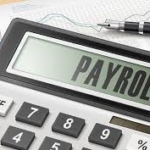5 Payroll Essentials Every Employer Should Know
Once you’ve hired your first employee, then you must make sure they get paid right? Well, we’ve seen some of the mistakes that employers typically make when they first start running payroll. This post will talk about the most important elements of processing payroll so that you don’t wind up in trouble.
Understand the labor laws.
As an employer, you must adhere to the federal, state, and local labor and employment laws. The federal Fair Labor Standards Act (FLSA) establishes rules for the minimum wage, premium pay for overtime, and protections for children who work. All employers should be aware of FLSA requirements as well as state and local wage and hour laws. One thing to be aware of is that they sometimes appear to contradict one another. For example, the federal minimum wage is $7.25, it’s $8.25 in Illinois and starting July 1, 2019 it will be $13.00 in Chicago. As such, you must always follow the provisions that are most favorable to your employees (i.e., pay $13 per hour if you’re located in Chicago). Most states have informative websites to help you figure out which laws apply. It’s a good idea to start there and then talk with a professional to make sure you’re following the right set of laws.
Establish your pay schedule.
Once your pay rates are determined to be in accordance with the laws, you then have to figure out how often to pay your employees. The beginning and ending dates of this schedule is referred to as your pay period, which represents the period in which your staff logged work time or earned wages. Pay periods typically include weekly, biweekly, semi-monthly and monthly. The “payday” is the actual date on which employees are paid. It’s usually a fixed number of days after the end of the pay period.
Withholding payroll taxes.
When it comes to payroll taxes, there are two parties, who are required to pay taxes on wages. This would be the employee and employer. These taxes are usually owed to both the federal government and the state, and in some cases to cities and municipalities as well. This post discusses in detail what some of those taxes are and your responsibilities. However, an employer is generally responsible for collecting federal income tax, Social Security, and Medicare tax from employees’ paychecks based on what employees marked in their Form W-4. The employer must then also pay a matching amount of Social Security and Medicare tax as well as Federal Unemployment Tax (FUTA).
Remitting taxes collected and filing the appropriate tax returns.
As an employer, it is your responsibility to deposit federal income tax withheld for your employees pay as well as both the employer and employee portions of social security and Medicare taxes. However when are you to make the deposits and how do you make them? Also, what are the penalties for making deposits late? This post will give you all the pertinent details.
Now for filings. Paying the taxes is one thing, but you must also file the corresponding returns. If you don’t, then the taxing authorities can’t properly match the deposits with other needed information. Federal Form 941 (quarterly federal tax return) must be filed each quarter, and Form 940 (FUTA tax return) must be filed yearly. You may also have to file similar forms for your state. Employers are also required to send Forms W-2 and W-3 to the Social Security Administration (SSA) each year. Most payroll services will handle these filings for you. If you do them yourself, read more about these forms here.
Keep good records.
As an employer, you must keep track of hours worked for hourly, nonexempt employees. Most workers are classified as either exempt or nonexempt depending on their salary and the type of work they do. You can read about these and other classifications in the FLSA and your state’s wage and hour laws. You can learn more about the timekeeping requirements by reviewing this fact sheet from the Department of Labor .

